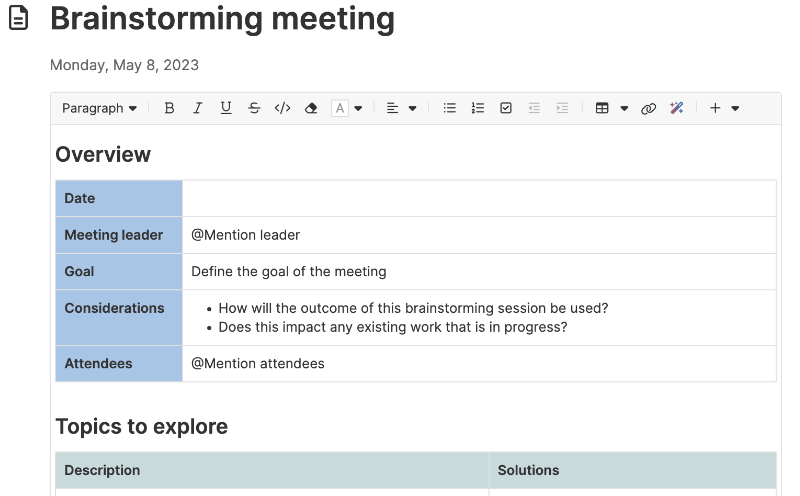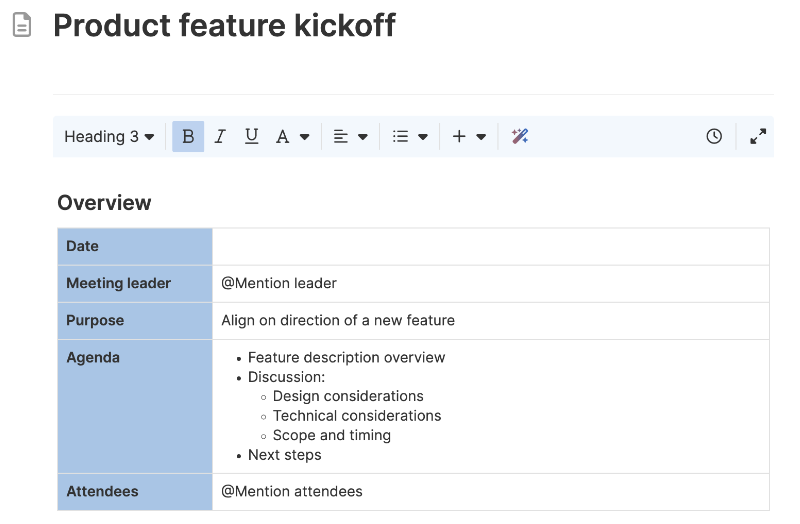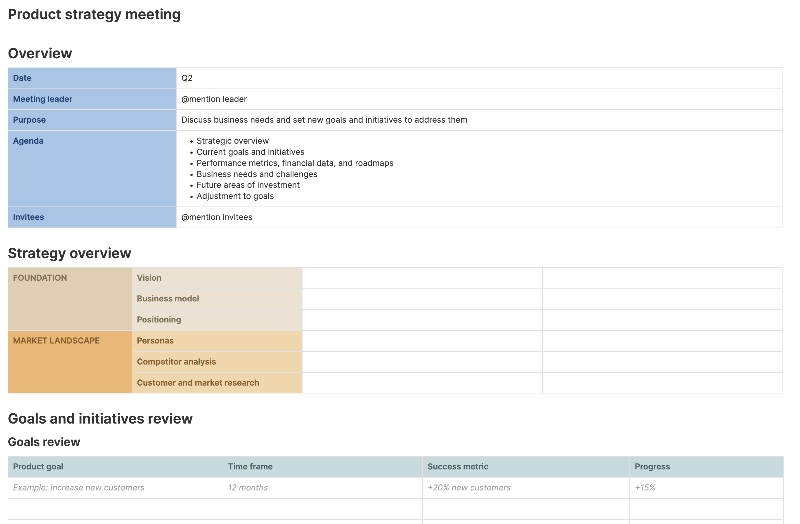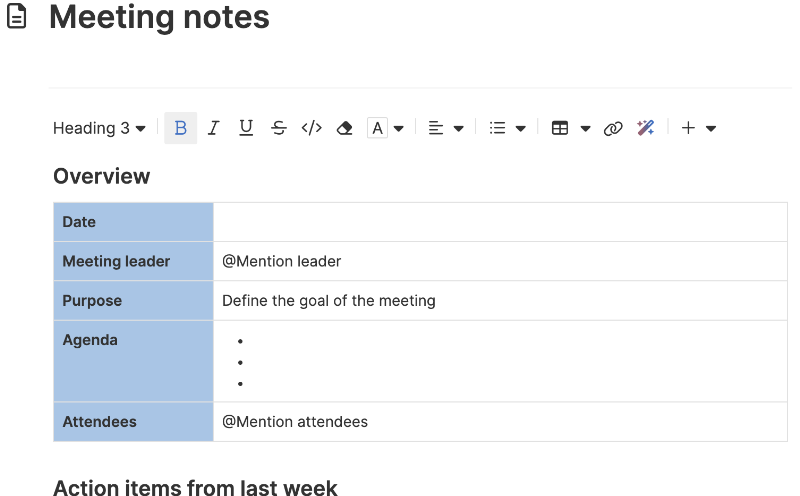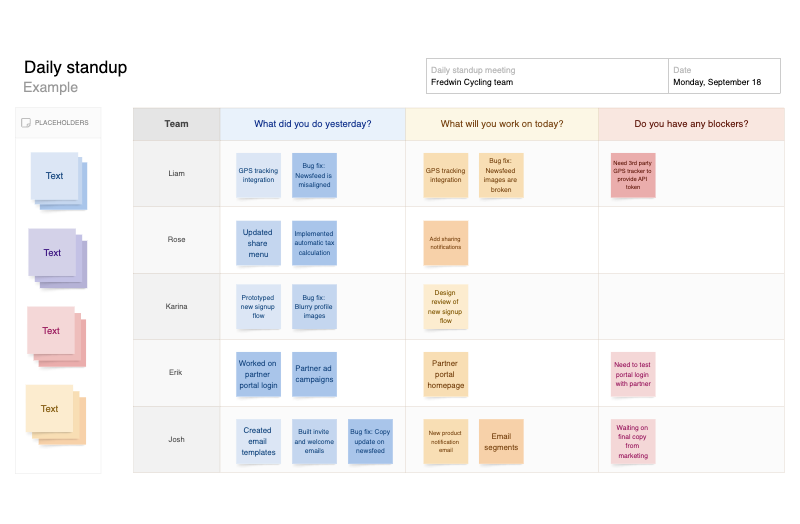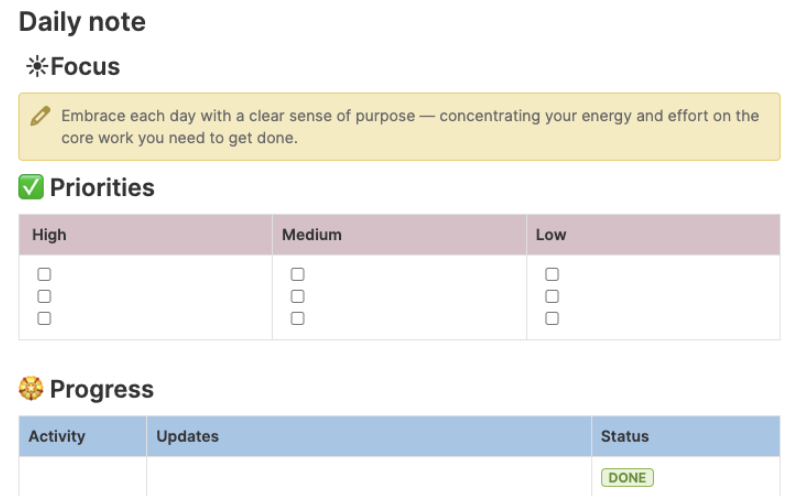Meeting agenda template
Make the time you spend together in meetings productive and results-oriented
Use template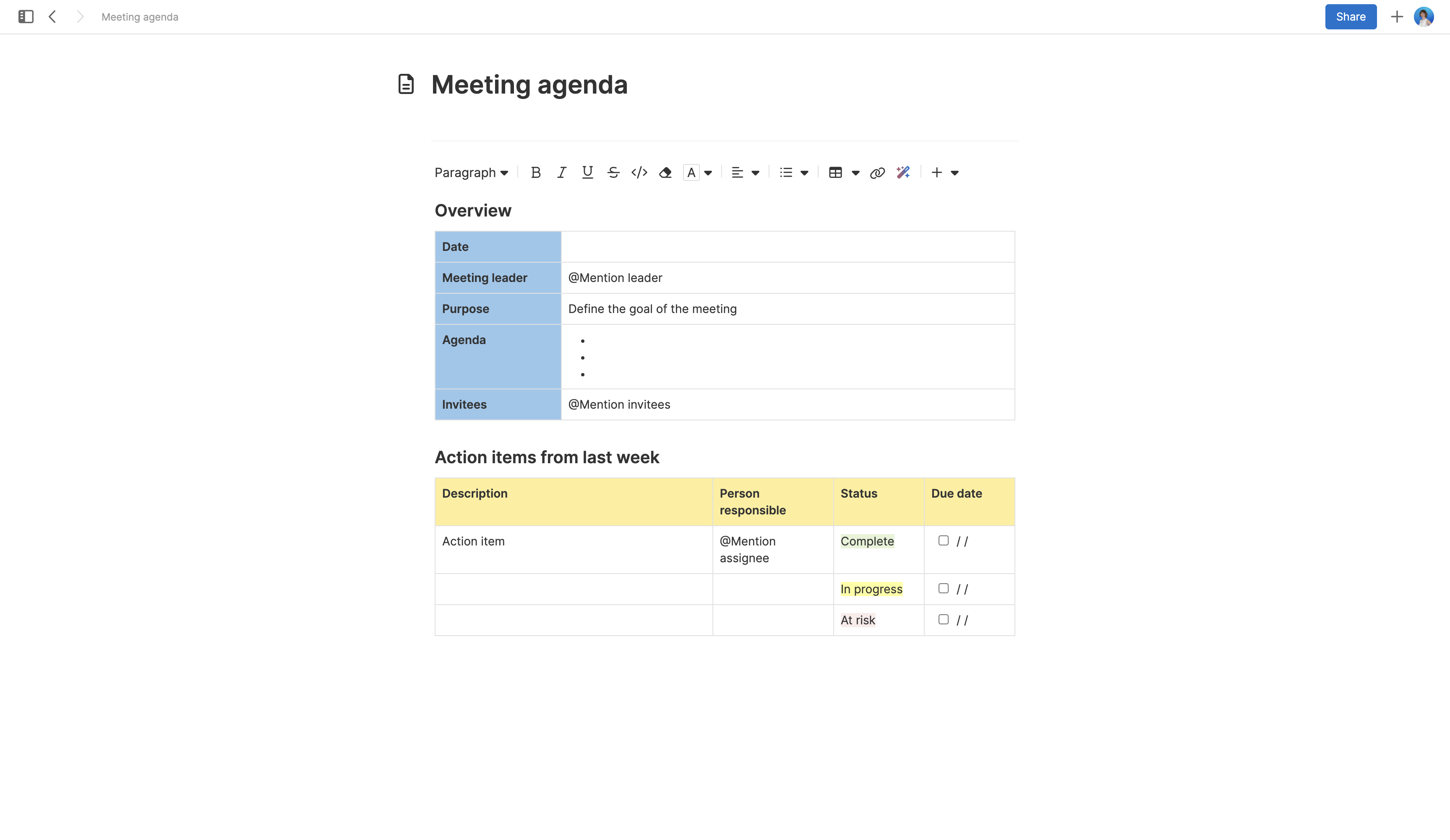
About the meeting agenda template
Meetings multiply as teams grow. What started as quick syncs becomes standing calendar blocks, and you are coordinating discussions across different groups with varying contexts. A meeting agenda creates structure by mapping out goals, topics, and expected outcomes before anyone joins the room or call. This template gives you a consistent format for every touchpoint — helping teams move through discussions efficiently and leave with clear next steps.
Included in the meeting agenda template
This meeting agenda template includes built-in capabilities such as:
A structure to help you capture and organize information (including action items, assignees, and status)
Quick access to meeting agenda best practices
A rich text editor to format content clearly
An AI assistant to help you draft and capture details quickly
Inline comments to gather feedback, questions, and ideas from teammates
How to use the meeting agenda template
Use this meeting agenda template whenever you need to map out focus areas and track action items for a meeting you are organizing. This template is open-ended and multipurpose, making it useful for planning any type of meeting. (Have a more specific use case in mind? We have plenty of specialized meeting templates for product teams in our template library, including daily standup, product strategy, sprint planning, and more.)
Start by filling out the boxes in the template's Overview table. Then, define the meeting's Purpose — the goal you want to achieve and the reason you are meeting — and jot down a few concise Agenda items.
Share the completed agenda with attendees and encourage them to add things they want to discuss. If relevant, the agenda also offers space for them to write down last week's action items so they can track the work and provide progress updates.
Best practices
Turn meetings into focused work sessions.
Define your purpose: Clarify your meeting's goal, what you will discuss, and who will be there. Share the agenda 24-48 hours before the meeting so people can add topics and come prepared with the information or questions they need to contribute.
Connect discussions to outcomes: Link each agenda item to a specific decision, deliverable, or next step. This helps everyone understand what success looks like for that part of the conversation.
Track commitments visibly: @Mention owners, add due dates, and update statuses in the template itself. In turn, the team has a single place to see what is in motion between meetings.
Embed collaboration tools: Help the team jump straight into the work instead of searching for context. Add a whiteboard for working sessions or link related docs.
FAQs about the meeting agenda template
What should you include in a meeting agenda?
A useful agenda includes the meeting's purpose, specific topics to discuss with time allocations, decisions that need to be made, and any prep work attendees might want to review beforehand. For recurring meetings, add a section for reviewing action items from the previous session so the team can see what has moved forward. Include context (like relevant documents or data) when the topic requires a shared understanding of specific information.
How do you run effective product team meetings?
The most effective meetings have a clear purpose and agenda shared ahead of time, giving people space to prepare their thoughts and contributions. Focus on discussions that benefit from real-time collaboration — decisions that need input from multiple perspectives, working sessions where the team builds something together, or strategic conversations that require back-and-forth dialogue.
For everything else, consider whether an asynchronous update or doc comment would work just as well. We cover more on this in our articles on running effective product team meetings, useful product management meeting templates, and managing product meetings better.
Who is the meeting agenda template for?
This template works for anyone running team meetings: product managers coordinating standups and sprint planning, engineering leads running technical design reviews, or cross-functional leaders organizing strategy sessions. It is especially valuable for PMs who juggle multiple recurring meetings each week and need a consistent structure that scales across different meeting types. If you are running several recurring meetings, having a reusable agenda format helps you prepare faster and gives each session clear direction.
Is this template free to use?
Yes. To use this meeting agenda template, sign up for a free 30-day trial of Aha! Whiteboards. (You can also try this template in Aha! Roadmaps if you need a complete product management solution.) Easily customize the template to suit your needs, then share it with as many people as you want (for free) to streamline collaboration.
